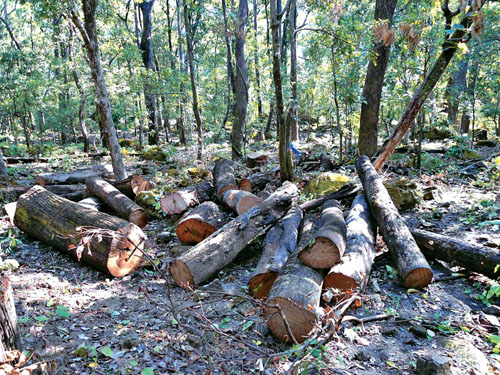LETTERS: Roadmap has no solution
A senior leader of the Tarai Madhes Democratic Party, Jitendra Sonal, is reported to have stated on Tuesday that the ongoing agitation and blockade would continue till the government met all their demands put forth by the Madhesi parties in a package. A Tharu leader also said he would like to have one Tharuhat Pradesh from Chitwan to Kanchanpur because Chitwan is also the home-land of the Tharus. Though many leaders have indicated the end of the ongoing crisis after receiving a green-signal from the Indian Foreign Minister Sushma Swaraj regarding the offer made by the ruling parties,I do not think Nepal should be that optimistic of finding lasting peace. Poverty of the wisdom of India and its acceptance with the surrendering note by the political leaders of Nepal by focusing the goal on party interests and personal careerist interests at the cost of the dignity and happiness of the Nepalese and of the peace of the country have resulted in the ongoing chaos and confusion. Some of the lawyers have opined that the amendment of the constitution now would be illegal.
Pragya Ananda, Kathmandu
Shrinking
Anthropogenic pressure, rapid industrialization, unplanned infrastructure developments, pushing agricultural lands into forested areas, illegal infringement and illegal land deals under the patronage of different political parties have been seriously impacting the forest cover across South and South East Asia. While one of the largest landmass in the region, India has been celebrating positive increase in Indian forest acreage based on a recent government forest survey; a dismal state of Indian forests across wildlife sanctuaries in India have been recently released by the Rediff Lab in an article entitled: The real story behind the growth of India’s Wildlife Sanctuaries.
While the Forest Survey of India survey indicates positive forest growth; the latter suggests negative growth of forests in varying degrees in different sanctuaries in every Indian states except Tamil Nadu, Mizoram and Punjab between 2006-2014. In spite of stringent forest and conservation laws, highly organized forest division with regular forest surveys being conducted, monitored and studied; India has been suffering serious forest losses over the past few decades; one could well make an educative estimate of the degradation of forest resources in adjoining smaller nations across South and SE Asia. Unless a joint and comprehensive action for forest conservation is adopted by both the SAARC and ASEAN eco-zones including rehabilitation of forest residents and remote rural communities where applicable; stringent monitoring and enactment of laws preventing cross border wildlife trafficking, poaching and illegal wildlife trade are required to save the majestic forest resources of South and SE Asia in the next two decades.
Saikat Kumar Basu, Canada






